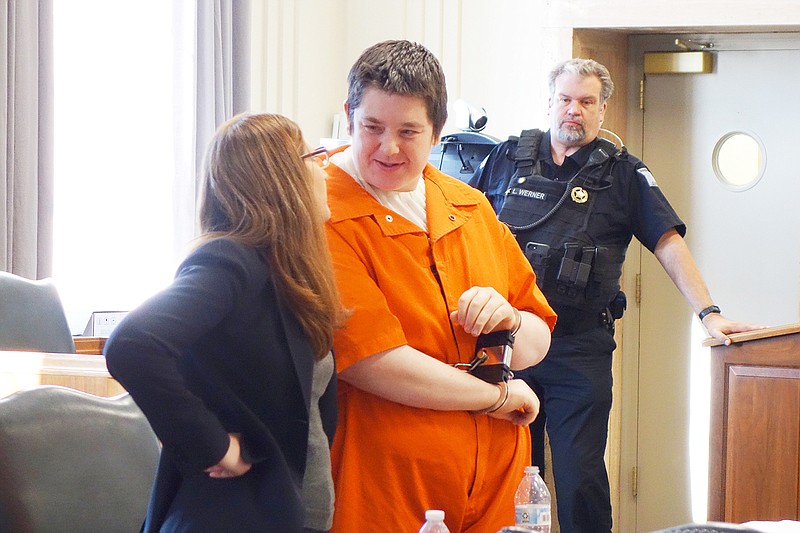Parties in convicted murderer Scottie Willet's motion to have his guilty plea discarded have filed proposed findings of fact and judgment.
The next step is for Judge Jeff Harris to make a ruling on the post-conviction relief motion.
"If the judge overrules the PCR motion, then the guilty plea and sentence stand, and Willet can appeal that decision," prosecuting attorney Christopher Wilson said in April 2017. "If the judge sustains the motion, then the judge can set aside the guilty plea. That means the criminal case is back to the point it was before the guilty plea - no more and no less."
After pleading guilty to killing a 6-year-old boy, the 30-year-old former Fulton resident received life without eligibility of parole in June 2016 for first-degree murder, plus a 20-year sentence for armed criminal action. During a two-day hearing in early April, public defender Valerie Leftwich argued Willet should not have been allowed to enter that plea deal.
The proposed findings of fact sum up each side's arguments and potentially relevant legal precedent, with each suggesting the direction Harris should rule.
Leftwich made several points on Willet's behalf, using a number of mental health professionals as witnesses. Her three key claims were: Willet did not have the capacity to plead guilty; his counsel was ineffective in failing to recognize this; and he was coerced into pleading guilty out of fear of the death penalty when, Leftwich said, his mental disabilities would preclude him from receiving it.
Responding attorney Bruce Allen argued during the hearing and in his filing that Willet's original public defender, Justin Carver, performed his duties adequately.
Leftwich suggested Carver should have hired a neuropsychologist or psychiatrist to evaluate Willet's mental competency, but Allen pointed to a 2012 Supreme Court decision that implies such efforts aren't necessary.
"The duty to investigate does not force lawyers to scour the globe on the off-chance something will turn up," the McLaughlin v. State decision reads in part.
Leftwich hired a neuropsychologist and a psychiatrist to evaluate Willet, both of whom found him to have low IQ and learning disabilities, among other issues. The neuropsychologist, Dr. Robert Fucetola, stated that in his opinion, Willet did not have the capacity to plead guilty.
During the April hearing, Carver said he had made sure Willet understood the implications of pleading guilty. He added he told Willet that pleading guilty meant, "He never gets out, ever."
In her filing, Leftwich accused Wilson of using a "scare tactic" to "coerce" Willet into pleading guilty. She stated Wilson "knew or should have known that Scottie was not eligible for the death penalty."
However, during the hearing, Wilson maintained he believed at the time and still believes Willet was eligible for the death penalty.

